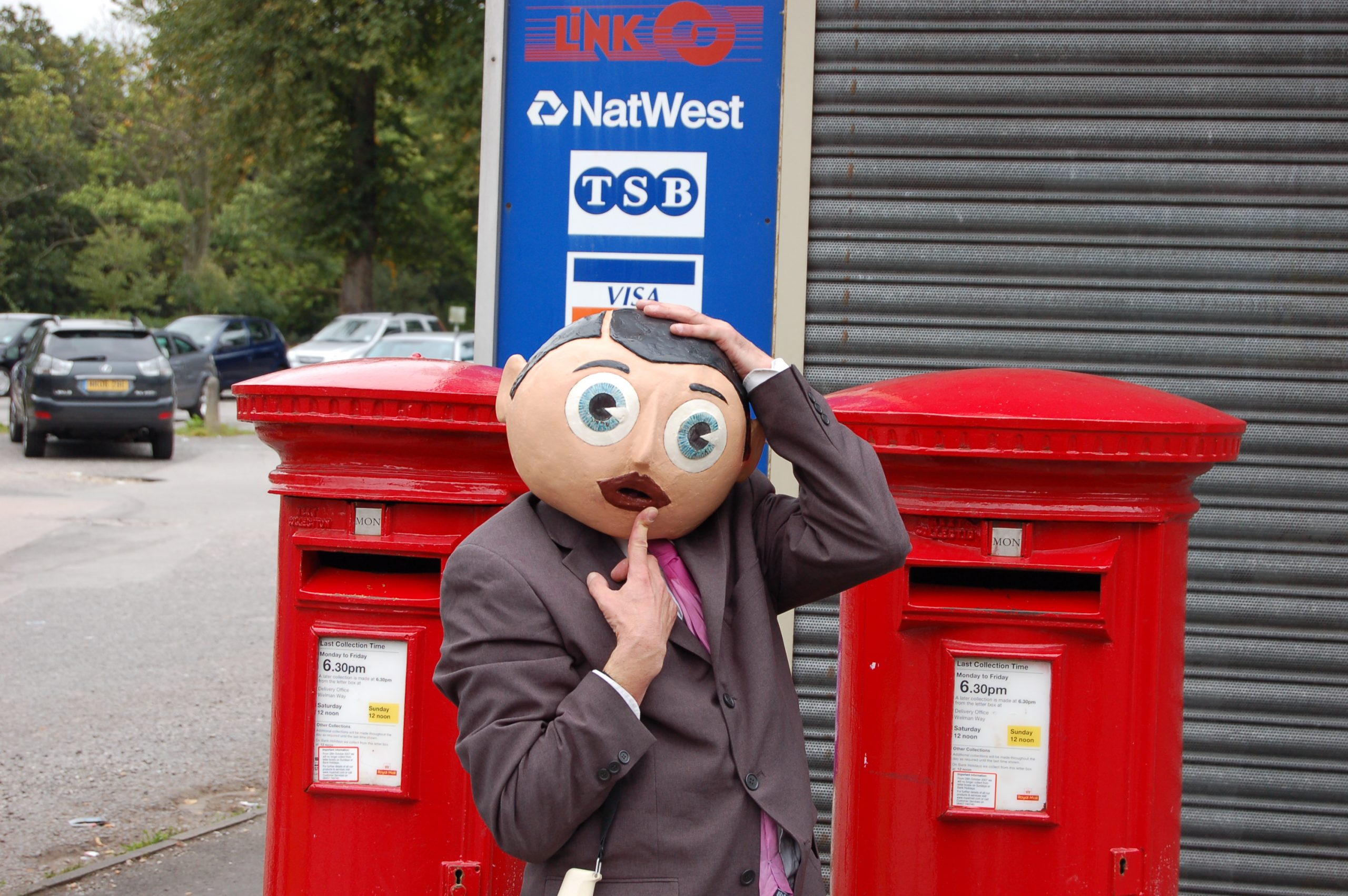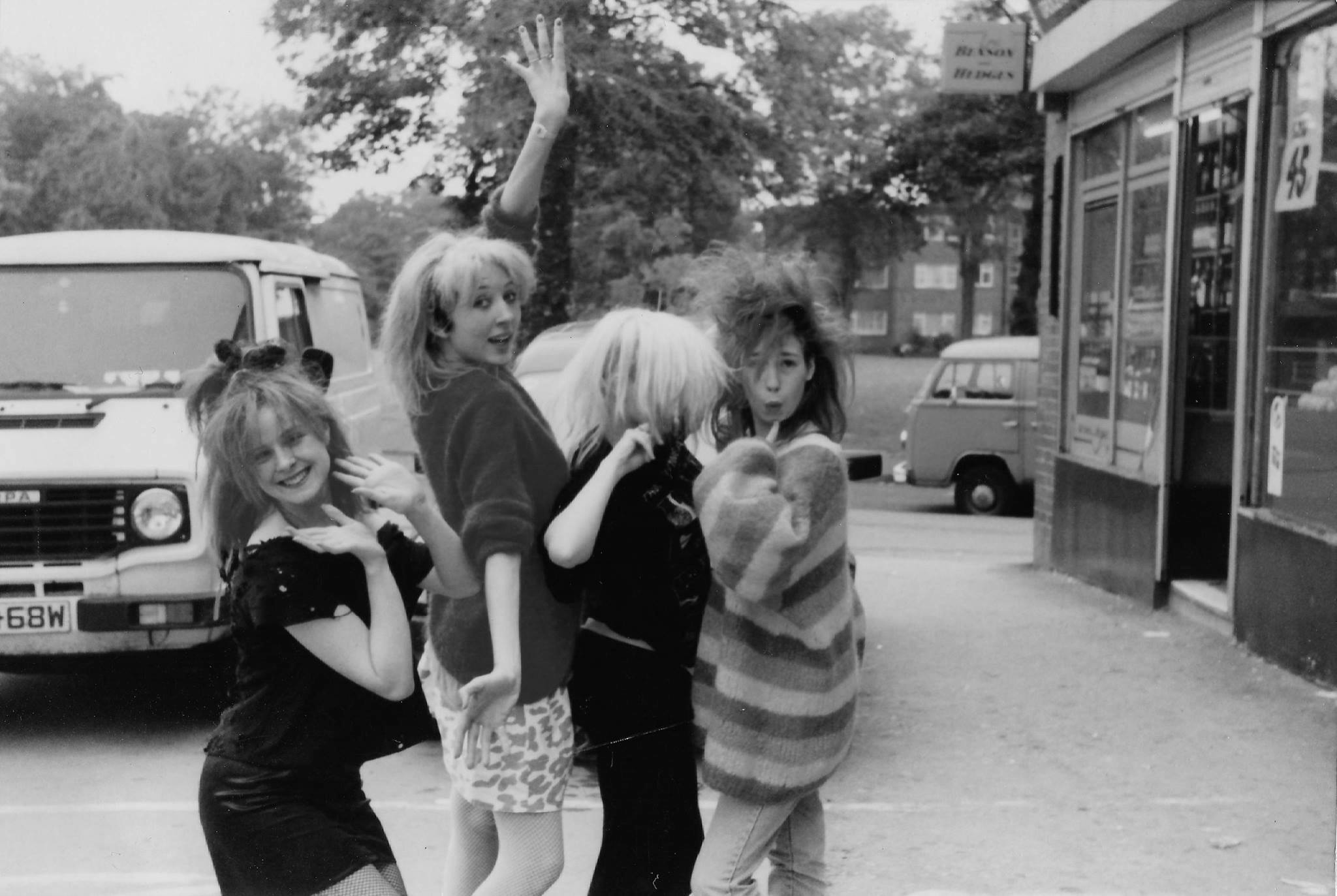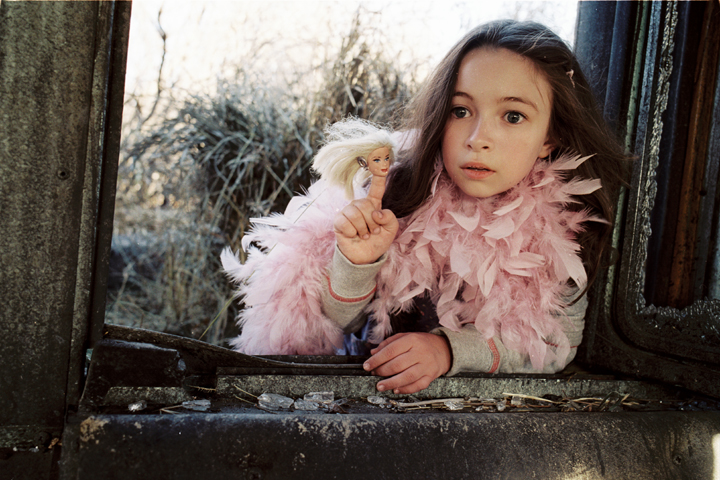This is an excerpt from a longer interview with the Brothers Quay, which took place in their London studio. They spoke about their status as American filmmakers operating within the UK. They suggested it would be better if their answers were quoted as coming from a single source. This was due to the problems that interviewers have encountered in attributing each comment to the correct brother.
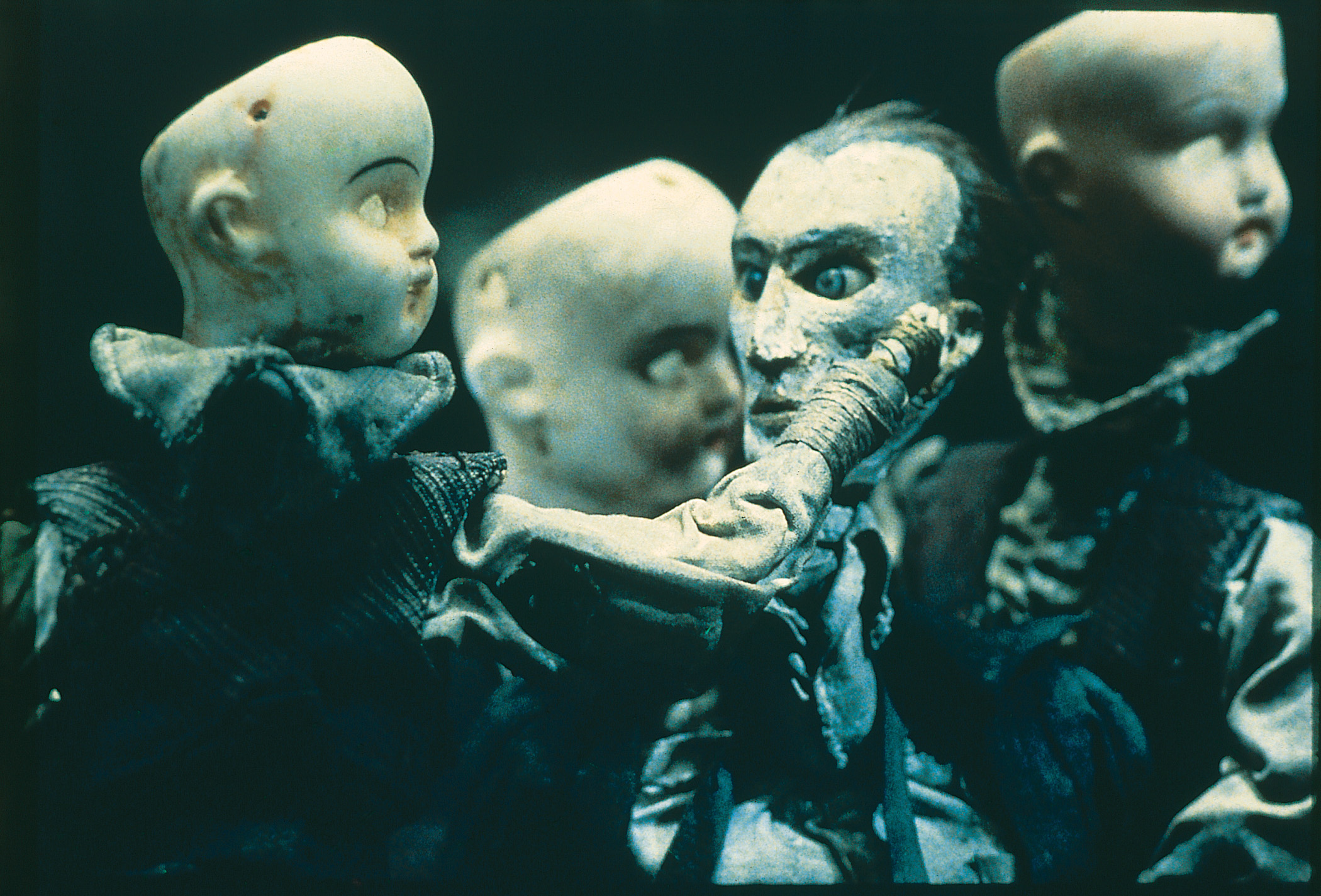
Phil Stubbs: You left America in the late 60s to further your studies in London, can you tell me about that?
The Brothers Quay: Our leaving was only because we were going to go to school for three years at the Royal College of Art. We always knew we were going back to America. After three years at the Royal College, we came back to Philadelphia for another six years, and then we said, “Let’s get out of here”.
We’d been accepted to go to the Royal College of Art, and at the same time our draft came up for Vietnam. That put a strange spin on it all. So we flunked the Draft by artful means. We carried on with our education, extending our life as artists, what was beginning to grow in us, our response to art, and our conception of it… which would not have materialised in the Vietnam War! The arts flung wide. We wanted to go to Europe, and we wanted to go to England because we did not speak any foreign language, and we wanted to be able to be educated. London was pretty good for that.
Actually we were always on the verge of taking off and not looking back. I think any sense of America was just gathering in the trail of dust behind us. Even now in hindsight there’s times when we remember when we went out, we saw these beautiful evenings, not sunsets but this kind of rare atmosphere… a very pointillistic memory but it’s something we don’t really indulge in. It’s better to see a David Lynch film for something really indulgent!
What did you study at the Royal College?
We came to study illustration, but we were told we’d be able to transfer to Film but that never was allowed. The Film department simply wouldn’t have funds to support another two applicants. They could do thirteen a year, but not fifteen. So it was a kind of false promise. But in the end by befriending a few of the filmmakers they got us a camera. Over one weekend we shot our first animation.
What was the subject of your first animation?
Oh god, I think it was the trapeze, loop the loop of the trapeze. Attempting the first triple somersault, with a terrible ending. Flames. I think we have them on videotape – they keep a low profile.
How did you find London upon your arrival?
I don’t think we knew that it was “swinging”. We didn’t have any notion of what was swinging. We were rather modest and lived in a closed universe. But we were already totally into Kafka. So we’d turned in on ourselves. We were very much pursuing literature and classical music, it was just a great place to be, and we loved walking the streets. The library was good, the College was here, we had some very, very good friends. And the realm of cinema you could see here, international cinema… We kept very, very busy, very happy. It allowed us to travel, we first travelled abroad in Europe at that time.
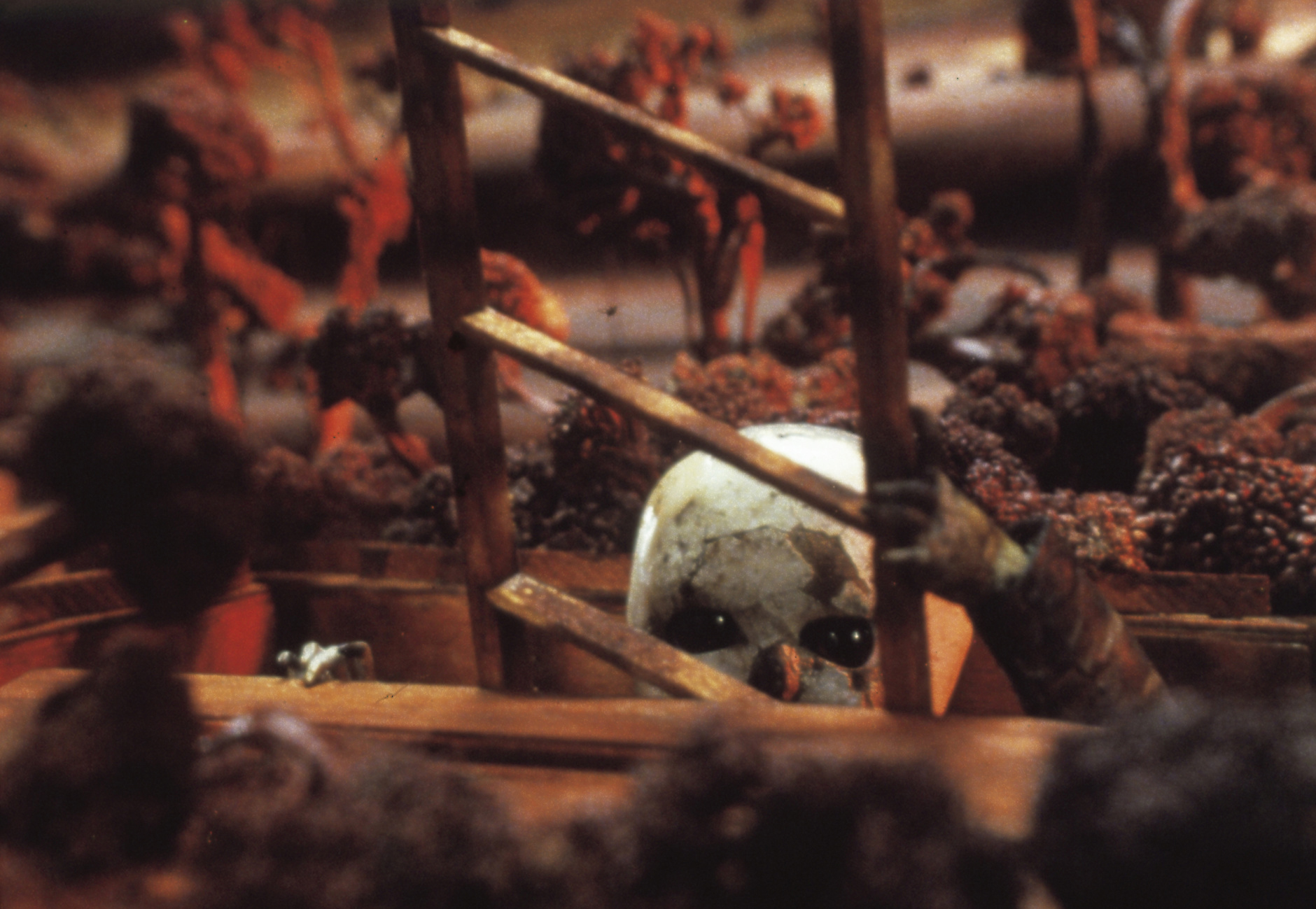
You then spent six years back in America…
We went back because we had to pay off the loan. We’d borrowed money from the State of Pennsylvania. We had to go back, there was no chance of getting work in England, it wasn’t allowed. We worked out of New York for a bit, doing book covers and then that fell through. And in the end we started washing dishes and then he was elevated to a waiter and I ended up doing typography for the Jewish Chronicle. We did that for the rest of our time there, it’s all we could do.
I got a National Endowment from the Government in our last year. We saved our money, and just put it all towards coming back here. We had Dutch friend who was at the Royal College. He said if you’re washing dishes in Philadelphia why don’t you wash them in Holland, you’ll be happier. So we left to go to Holland. And we did live in Holland for about six months.
And by the late 70s you were back in London
When we came to live in Holland we stopped off in London and visited friends and we met up again with Keith Griffiths, the producer we’ve had all our life, and he was working at the British Film Institute. He suggested we make an application for experimental film. So that’s just prior to going to live in Amsterdam, we drafted a little scenario, and flew off. About six months later, we won seven thousand pounds grant to make our first puppet film.
When you came over in the late 70s for the second time did you think you were going to stay for the rest of your lives?
I think we did, but we didn’t really think about it. We just said we’d take life by the day – film is frame by frame, and life is day by day. We don’t have schedules and trajectories of what we think we’re going to do. London for us today is still a great city for us to work. People leave you alone. We can bury ourselves here.
Do you have a sense of belonging to either a place or a national culture?
No, we can adapt anywhere. We feel at home, let us hit the sidewalks in any big European city and we’re happy, getting lost in the streets. Maybe it’s our twinhood, but we’re very safe within it. Yet at the same time we’re very light, that we can adapt to any situation any place. That’s what Americans are very good at, that American side of being open, but we went the other way from the Klondike race. We looked for gold in the opposite direction.
Are there ever any autobiographical elements that feature in your work?
I think they’re pretty much distilled out of it. I think given the nature of certain films you do, there may be some idiosyncratic something or other but it’s not apparent. We don’t tell jokes either. Terry can be a barrel of laughs but we’re a bit spartan.
I see there’s some antlers up there. What is the source of the deer references?
As kids we used to travel up to the Poconos, the mountain region in Pennsylvania. The woods at the back of the house. Of course where we would always travel round. All these pine trees, powerful scent of the pine needles in the forest… there’d always be a deer. I think it always left a strong memory and then of course you travel around Europe you’d see a trophy, especially in Bavaria and Austria.
What really began to fascinate us was when the antlers are not symmetrical. One sort of de-routes. Of course there’s a pathological reason for that which we investigated in Stille Nacht 3, which has a whole sequence based on discoveries of antlers. When the deer hears the gunshot it turns tail, it’s so quick, the bullet will sometimes hit the testicle and it lodges there. It doesn’t kill the animal, it just suddenly does something to the internal workings that when they start skewing. These are really treasure pieces, these deformed antlers. Some of them flower, mushroom… like a wundercammer object. Something you would bow down to, or become a religious object and they are quite fascinating. In Institute Benjamenta we just took it further – One man’s deer museum, where he collected these elements of deerdom.
You get the feeling that, metaphorically, the antler is a part of the brain. It grows out in this fantastic imagination. We remember mysterious furtive grey objects in the forest – it was really magical for us.
We don’t really draw that much from childhood hardly at all. It’s not that we suppress it, it’s just that it’s not interesting. We do talk about some things and at the end we look at each other and say: it’s not really very interesting, nothing could do with that.
Your work is very removed from the anthropomorphism in mainstream animation
That’s what we don’t believe in because for us you’re animating whether it’s an object or whether it’s the soul of an object or some invisible soul or making connections between objects and puppets rendering their otherness, then trying to make then heal to human standards is not for us. It’s a universe that’s unique unto itself that you animate from objects here that make them exert real life and that fascinates us. Animation is like the thirteenth freak month or the sixth toe – it’s an apocrypha. You should emphasise that.
I just think that animation has a rich metaphor. I think anything that the best of Eastern European animation – the Russians, the Poles and Czechs, elaborated an art like maybe only one eighth shown on the surface, seven-eighths was where the metaphor was working in the system. We’re not used to that in the West. You put the seven-eighths on top, there’s only one eighth underneath. Some of that fault’s Disney’s of course, but we are five thousand miles away from that influence.
You know Terry Gilliam. You designed something for an advert he was working on, that influenced what they did.
We’ve never seen it. We didn’t think he used it. He said do what you want with it. We were very flattered, he’s very special, Terry. The area he has carved out, one that’s closest to us. We feel very close. But, he’s got humour.
You don’t feel you have humour?
No. He can express it in cinema. He’s not afraid. In a curious way if he gets any bigger, he’s gonna be like Orson Welles, because he has a vision and it’s quite huge and he’s fearless with that vision, and I really admire him for that. Our vision entirely puts us in a corner, and we’ll take you to a deeper corner. We like that, it’s reductive and the smaller space we can work out of, we’re happy as anything. But Terry really needs a huge palate.
Do you feel part of a national film industry?
In England – no, not at all. It’s a private vendetta in a dog-eat-dog world. You just scramble for projects. Although we are Americans working in London, nobody considers us as Americans. I think Terry’s more known for being big and American. In a way it’s like the kind of animation films we make, it’s not like you can say ah very American character, or they look very English… It doesn’t have an identifiableness. The British Council do export our films to festivals, so it must have a kind of idiosyncratic quality.
The animation world is small but it’s very intense. When there’s an animation festival you meet all the animators. Then you meet at the next festival and then there’s another festival. You’re constantly roving, a jetsetter. You really form strong bonds. We know the Russians, we know the Poles, the Czechs. And it’s kind of amazing like that. I don’t think you can say Russian animation, Czech animation but you belong to one international school, because the festivals are run internationally. The Cannes Film Festival is too big and it’s for stars. At animation festivals, there’s no stars. Nothing like that, you’re just a director. It’s nice like that. There’s really a great camaraderie too. You get an old veteran on – that’s great, but there’s no preening, there’s no star actresses.
